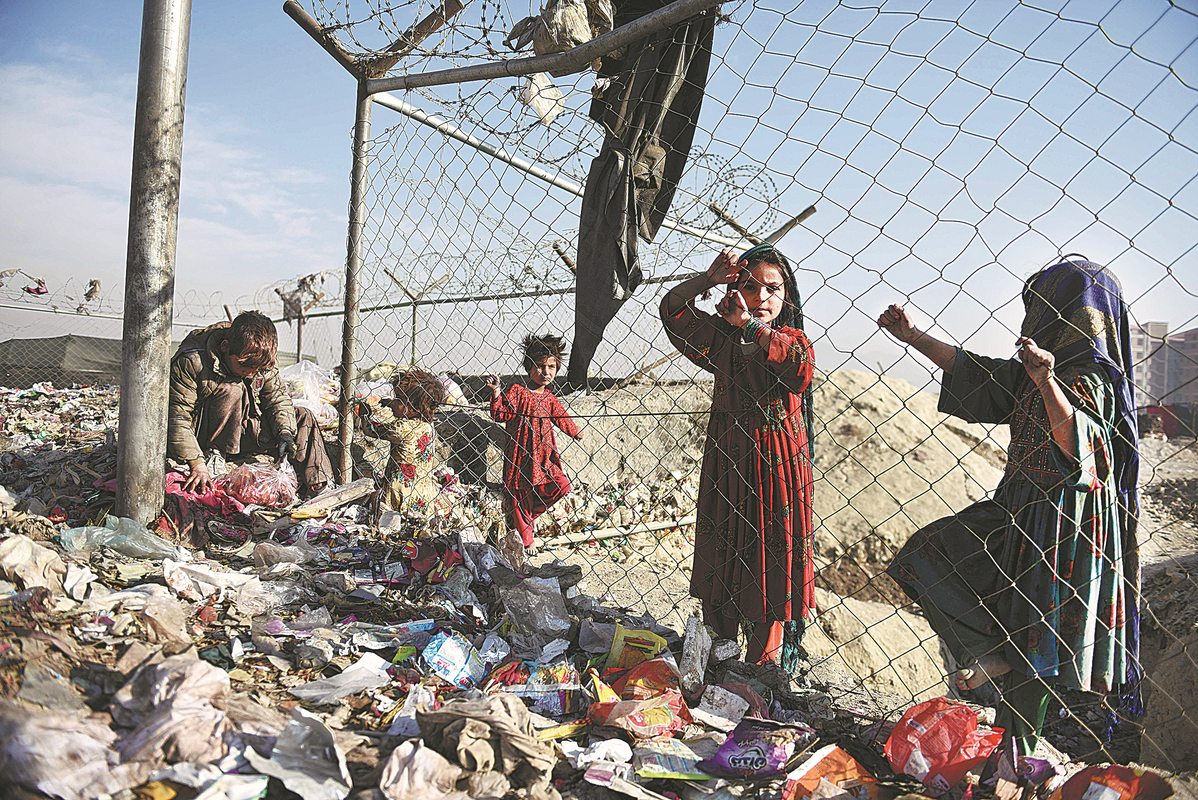Young Afghans victim of flawed model
China Daily Global | Updated: 2021-12-08 10:08

KABUL-The United States portrays itself as a model of democracy for the rest of the world, but its so-called beacon of democracy has long collapsed.
Several countries that have the US style of democracy imposed on them have witnessed prolonged conflicts and insecurity, tattered national economies and massive suffering among their people. The US style of democracy failed to fit in Afghanistan as well, leading to the loss of more than 100,000 Afghan lives and an unfolding humanitarian crisis.
As the weakest and most vulnerable group, Afghan children have become victims to the export of US democracy.
Padshah cannot go to school due to extreme poverty and has to work on the streets to help his family make ends meet.
The 12-year-old boy, who is from the northern Baghlan Province, moved to Kabul with his family three months ago in search of a better life. He said he can hardly earn 80 afghani (less than $1) to support his family.
From dawn to dusk, Padshah weaves through the streets of Kabul to earn a living, as the sanctions imposed by the US have destroyed businesses elsewhere in the country.
"People on the streets say that America has blocked Afghan assets and the brutal action has led to poverty, and that is why many people, including my father, have lost their jobs," Padshah said.
Following the US military pullout in Afghanistan and the Taliban's takeover in mid-August, Washington has reportedly frozen more than $9 billion in assets of Afghanistan's central bank, leaving the new rulers in the doldrums.
The sanctions have undermined bank activities in Afghanistan, as many Afghans withdrew their deposits. To avoid bankruptcy, the banks imposed restrictions on the amount of money that customers can withdraw. To survive, Afghans, including Kabul residents, resorted to selling home appliances on roadsides, but customers are few as US sanctions have shrunk the purchasing power of Afghans.
The impact of Washington's sanctions on Afghanistan is palpable as the afghani is tumbling against the US dollar every day, and the rising prices of basic items have forced many Afghans to find extra jobs.
Schooling disrupted
Mir Ahmad, an Afghan wood seller and father of five, said poverty has forced him to disrupt his son's schooling and have his son help out at his shop.
Denouncing the US for freezing the Afghan assets and its double standards that hurt Afghans, Ahmad said many of his son's classmates have also given up on school due to poverty and are working with their parents, or on the streets as child laborers to earn a living and support their families.
"Blocking Afghan assets is a kind of bullying that has squeezed ordinary people like me to stop my son from going to school," said Ahmad angrily.
In a hospital in Kabul, Nafisa was sad that she cannot give her children enough to eat.
"Destructive war, displacement and poverty have devoured my life and that is why my 18-month-old daughter is suffering from malnutrition here in the hospital," said the mother of eight.
"The war claimed the life of my husband one year ago and left me with eight children in poverty."
Lying on the hospital bed, 18-month-old Karima is sharing a ward with some 10 other children.
Doctors said more Afghan children have been suffering from malnutrition this year.
"In this season in the past years, we had five to seven children suffering from malnutrition but unfortunately this year nowadays, we register seven such children on average every day," said Noorul Haq Yousufzai, head of the Indira Gandhi Institute of Child Health in Kabul.
More than half the population of Afghanistan, or a record 22.8 million people, have faced acute food insecurity from November, and 3.2 million children under the age of 5 are expected to suffer from acute malnutrition by the end of the year, according to a World Food Programme report released in October.
Xinhua
























